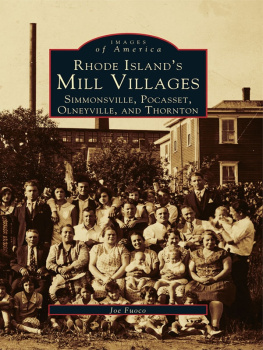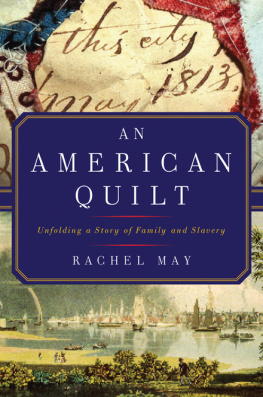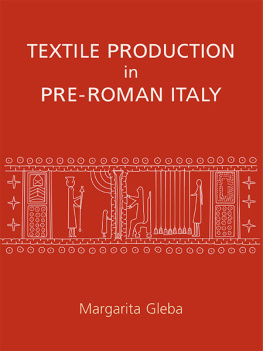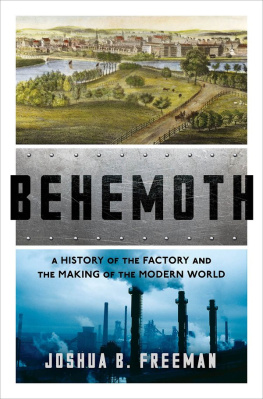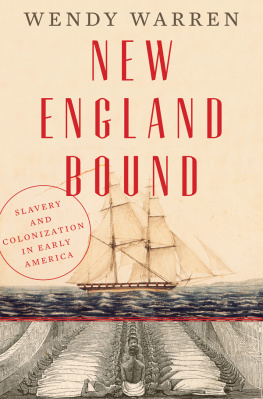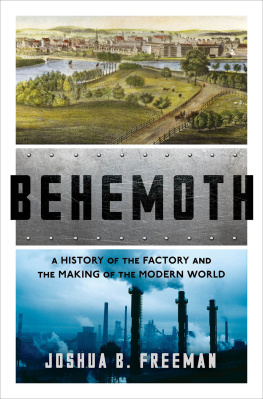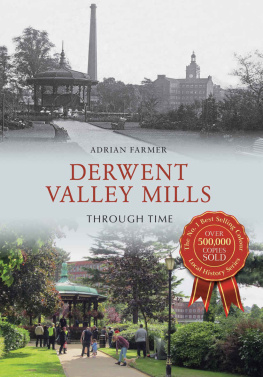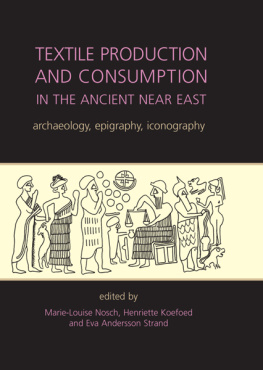The
Belles of
New England

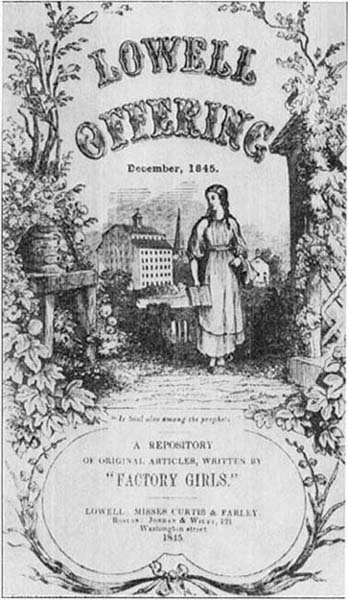
The
Belles of
New England

The Women of the Textile Mills
and the Families Whose
Wealth They Wove
WILLIAM MORAN

THOMAS DUNNE BOOKS
An imprint of St. Martins Press.
THE BELLES OF NEW ENGLAND. Copyright 2002 by William Moran. All rights reserved. Printed in the United States of America. No part of this book may be used or reproduced in any manner whatsoever without wntten permission except in the case of brief quotations embodied in critical articles or reviews. For information, address St. Martins Press, 175 Fifth Avenue, New York, N.Y. 10010.
www.stmartms.com
Design by Kathryn Parise
Endpapers: The Amoskeag Mills collected portraits of the men and women who traveled to Manchester to work for the company. (Courtesy of the Manchester Historic Association)
Frontispiece: The Offering was one of the first workers publications in the country. (Courtesy of the American Textile History Museum, Lowell, Massachusetts) Excerpt from A Lone Striker from The Poetry of Robert Frost edited by Edward Connery Lathem, 1964 by Lesley Frost Ballantine, copyright 1936 by Robert Frost, 1969 by Henry Holt and Co. Reprinted by permission of Henry Holt and Company, LLC.
Excerpt from the poem Parlez-vous? by Paul Marion is reprinted by permission of the author and Loom Press. Copyright 1985 by Paul Marion.
LIBRARY OF CONGRESS CATALOGING-IN-PUBLICALION DATA
Moran, William, 1934
The belles of New England : the women of the textile mills and the families whose wealth they wove / William Moran.
p. cm.
Includes bibliographical references (p. 267) and index (p. 277).
ISBN: 0-312-32600-9 ISBN: 978-0-312-32600-5
1. Women and textile workersNew EnglandHistory. 2. Textile industryNew EnglandHistory. 3. IndustrialistsNew EnglandHistory. 4. Familyowned business enterprisesNew EnglandHistory. 5. Rich peopleNew EnglandHistory. 6. Social classesNew EnglandHistory. I. Title.
HD6073.T42 U56 2002
338.4'7677'0097409034dc21
2002068378
D 10 9 8 7 6 5
For Nancy, Lisa, and Beth
CONTENTS

The ingenuity of Francis Cabot Lowell brings large-scale textile manufacturing to New England. Generations of native-born Americans and immigrants find jobs in the mills.
From the rocky farmland and tranquil villages of New England, women migrate to the mill towns to take their place in the history of the American labor movement.
Business leaders in Boston expand the textile industry, accumulate great wealth, and ignite a fierce debate over the morality of using Southern slaves to provide the cotton that feeds the mills.
Irish laborers build the mills, and Irish famine victims of the mid-nineteenth century replace the Yankee women at the looms.
The ethnic character of New England is changed forever as the French Canadians of Quebec cross the border to seek opportunity in America.
Poles, Italians, Russians, Jews, and many others weary of Europes nineteenth-century wars and poverty join the workforce in the New England mills.
Immigrant women lead the great 1912 textile strike in Lawrence, Massachusetts, and the women win.
The shift of textile manufacturing to the South destroys the industry in New England.
ACKNOWLEDGMENTS

T his book could not have been written without the help of the people acknowledged here. I am grateful to Roy Rowan, a distinguished journalist who opened the doors to the world of book publishing for me. My agent, Myra Manning, led me through the doors, and was a tower of strength, determination, and optimism. Marcia Markland, my editor at Thomas Dunne Books/St. Martins Press, and Cynthia Merman, my copy editor, guided this work to publication with insight and skill.
I owe special thanks to Clifton N. Burrowes, Jr., and Robert Pierpoint, who read early versions of the manuscript and guided me away from grammatical and editorial troubles. Whatever errors survived subsequent revisions are mine alone.
Louise Sandberg of the Special Collections desks at the Lawrence, Massachusetts, Public Library, read the chapter on the 1912 Lawrence strike and made helpful suggestions. She generously shared her knowledge of the citys industrial history. Claire Sheridan, librarian at the American Textile History Museum in nearby Lowell, was of invaluable help throughout the preparation of this book, as was Pat Jaysane of the Immigrant City Archives in Lawrence.
My thanks also to Jane E. Duggan, Willian Faucon, and Eugene Zepp of the Boston Public Library; Nicole Hayes and Christine Riggle of the Baker Library, Harvard Business School; Tom Featherstone of the Walter P. Reuther Library at Wayne State University, Detroit; Randy Manella and Catharina Slautterback of the Boston Athenaeum; Dan Walsh, curator at the Lowell National Historical Park; Penelope Rosemont, George H. Kerr Publishing Co., Chicago; Julie Herrada and Mark A. Chaffee of the Special Collections Library, University of Michigan; Mary Riley, librarian, and Kerry A. OBrien, assistant dean of faculty, Bates College, Lewiston, Maine; Martha Mayo of the Center for Lowell History; Leslie A. Morris, curator of manuscripts, and Emily C. Walhout of the Reading Room, Houghton Library at the Harvard University; Eileen OBrien, curator of library collections, Manchester (N.H.) Historic Association; Ken Skulski and Mary Armitage of the Immigrant City Archives in Lawrence; Patricia J. Albright, Mount Holyoke College Archives; James M. Jacobs, director, Immaculate Conception Cemetery in Lawrence; and for their help along the way, Ray Brady, James Houtrides, Myra MacPherson, Ardis Cameron, Meghan Stern, and Beth Moran. Finally, I thank Thomas Dunne for believing in this book.
The
Belles of
New England

I am going home where I shall not be obliged to rise so early in the morning, nor be dragged about by the factory bell, nor confined in a close noisy room from morning to night. I shall not stay here.... Up before day, at the clang of a bell and out of the mill by the clang of the bellinto the mill and at work in obedience to that ding-dong of a belljust as though we were so many living machines.
The Spirit of Discontent in the Lowell Offering.
Author unknown.
1

A Place in the Universe
Next page

